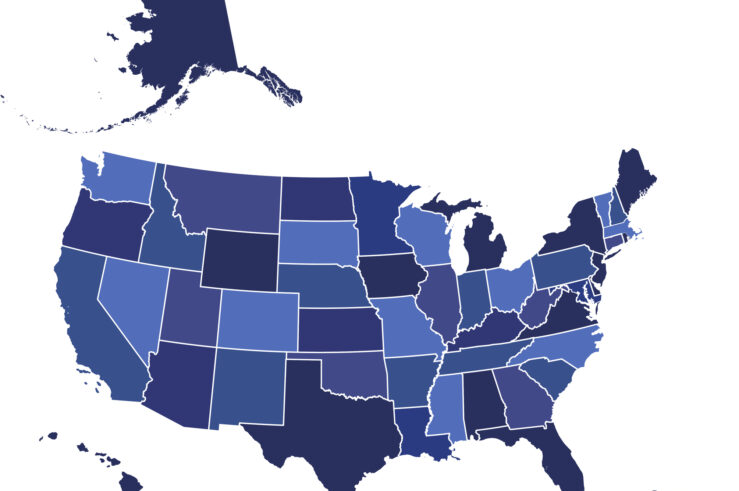Showing results for: “sirius xm merger”
Political Philosophy, Competition, and Competition Law: The Road to and from Neoliberalism, Part 2
In just over a century since its dawn, liberalism had reshaped much of the world along the lines of individualism, free markets, private property, contract, trade, and competition. A modest laissez-faire political philosophy that had begun to germinate in the minds of French Physiocrats in the early 18th century had, scarcely 150 years later, inspired ... Political Philosophy, Competition, and Competition Law: The Road to and from Neoliberalism, Part 2
10 Things the American Innovation and Choice Online Act Gets Wrong
The Senate Judiciary Committee is set to debate S. 2992, the American Innovation and Choice Online Act (or AICOA) during a markup session Thursday. If passed into law, the bill would force online platforms to treat rivals’ services as they would their own, while ensuring their platforms interoperate seamlessly. The bill marks the culmination of ... 10 Things the American Innovation and Choice Online Act Gets Wrong
Merger Control’s Misaligned Incentives
Antitrust policymakers around the world have taken a page out of the Silicon Valley playbook and decided to “move fast and break things.” While the slogan is certainly catchy, applying it to the policymaking world is unfortunate and, ultimately, threatens to harm consumers. Several antitrust authorities in recent months have announced their intention to block ... Merger Control’s Misaligned Incentives
FTC Challenge to Nvidia-Arm Vertical Merger: Potential Efficiency Justifications
The Federal Trade Commission (FTC) on Dec. 2 filed an administrative complaint to block the vertical merger between Nvidia Corp., a graphics chip supplier, and Arm Ltd., a computing-processor designer. The press release accompanying the complaint stresses the allegation that “the combined firm would have the means and incentive to stifle innovative next-generation technologies, including ... FTC Challenge to Nvidia-Arm Vertical Merger: Potential Efficiency Justifications
Oldie-but-Baddie: The Revival of an Antitrust ‘Efficiencies Offense’?
Recent antitrust forays on both sides of the Atlantic have unfortunate echoes of the oldie-but-baddie “efficiencies offense” that once plagued American and European merger analysis (and, more broadly, reflected a “big is bad” theory of antitrust). After a very short overview of the history of merger efficiencies analysis under American and European competition law, we ... Oldie-but-Baddie: The Revival of an Antitrust ‘Efficiencies Offense’?
What is the Appropriate Role for State Antitrust Enforcement?
In the U.S. system of dual federal and state sovereigns, a normative analysis reveals principles that could guide state antitrust-enforcement priorities, to promote complementarity in federal and state antitrust policy, and thereby advance consumer welfare. Discussion Positive analysis reveals that state antitrust enforcement is a firmly entrenched feature of American antitrust policy. The U.S. Supreme ... What is the Appropriate Role for State Antitrust Enforcement?
Judge Ginsburg: On the Proposed Digital Markets Unit and the UK’s Competition and Markets Authority
Thank you, Victoria, for the invitation to respond to Mr. Coscelli and his proposal for a legislatively founded Digital Markets Unit. Mr. Coscelli is one of the most talented, successful, and creative heads a competition agency has ever had. In the case of the DMU [ed., Digital Markets Unit], however, I think he has let ... Judge Ginsburg: On the Proposed Digital Markets Unit and the UK’s Competition and Markets Authority
FTC Moves Closer Toward Ex Ante Merger Regulation
The Federal Trade Commission (FTC) has taken another step away from case-specific evaluation of proposed mergers and toward an ex ante regulatory approach in its Oct. 25 “Statement of the Commission on Use of Prior Approval Provisions in Merger Orders.” Though not unexpected, this unfortunate initiative once again manifests the current FTC leadership’s disdain for ... FTC Moves Closer Toward Ex Ante Merger Regulation
5 Thoughts on the Senate’s Proposed Platform Self-Preferencing Ban
A bipartisan group of senators unveiled legislation today that would dramatically curtail the ability of online platforms to “self-preference” their own services—for example, when Apple pre-installs its own Weather or Podcasts apps on the iPhone, giving it an advantage that independent apps don’t have. The measure accompanies a House bill that included similar provisions, with ... 5 Thoughts on the Senate’s Proposed Platform Self-Preferencing Ban
Why There Needs to Be More, not Less, Consolidation in Video Streaming
Slow and inadequate oversight risks the streaming market going the same route as cable—where consumers have little power, few options, and where consolidation and concentration reign supreme. A number of threats to competition are clear, as discussed in this section, including: (1) market power issues surrounding content and (2) the role of platforms in “gatekeeping” ... Why There Needs to Be More, not Less, Consolidation in Video Streaming
Khan’s ‘Vision and Priorities for the FTC’ Statement Lacks Humility and Strategic Insight
Federal Trade Commission (FTC) Chair Lina Khan’s Sept. 22 memorandum to FTC commissioners and staff—entitled “Vision and Priorities for the FTC” (VP Memo)—offers valuable insights into the chair’s strategy and policy agenda for the commission. Unfortunately, it lacks an appreciation for the limits of antitrust and consumer-protection law; it also would have benefited from greater ... Khan’s ‘Vision and Priorities for the FTC’ Statement Lacks Humility and Strategic Insight
Using the Hypothetical Monopolist Test to Define the Relevant Market for Ad Tech
Policymakers’ recent focus on how Big Tech should be treated under antitrust law has been accompanied by claims that companies like Facebook and Google hold dominant positions in various “markets.” Notwithstanding the tendency to conflate whether a firm is large with whether it hold a dominant position, we must first answer the question most of ... Using the Hypothetical Monopolist Test to Define the Relevant Market for Ad Tech














